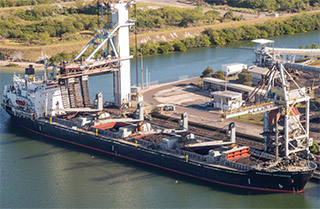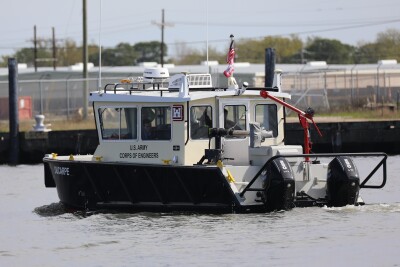With a renewed attempt afoot to roll back the Jones Act, a young Washington, D.C., advocacy group’s report criticizing the U.S. shipping law was slammed by industry groups for factual errors.
“The publication is littered with fabrications intended to mislead policymakers and we demand a retraction of the report,” said Tom Allegretti, chairman of the American Maritime Partnership, an industry group that issued a scorching critique of the paper. Allegretti is also president and CEO of the American Waterways Operators.
Because of Jones Act requirements for U.S. coastwise trade to be carried by U.S.-built and crewed vessels, “the cargo fleet has slowly deteriorated and become unnecessarily expensive to operate,” asserts the report from the Alliance for Innovation and Infrastructure (Aii), a non-profit formed in 2015 with a stated mission to “promote proven, innovative technology and higher safety standards to achieve industry excellence nationwide.”
“The citizen crewing requirement alone increases the daily cost to man a Jones Act vessel by at least six times the cost of a foreign-crewed ship due to inflated wage rates,” notes the report, titled “The Jones Act: Protectionism vs. Global Trade.”
But early on, the nine-page report makes a major pratfall, apparently conflating the decline of the U.S. bluewater merchant fleet with the state of U.S. domestic shipping, as have some other critics. The report states that: “Today, about six dozen Jones Act-qualified vessels are in operation, and for almost 100 years these ships have not been subject to competition or encouraged to innovate … because they have a monopoly on domestic trade routes, there has been no incentive to reduce costs, improve standards, or update technology.”
The AMP was all over that statement, pointing out that some 40,000 U.S. vessels operate under the Jones Act. The AMP pointed to the pace of technological advance in U.S. shipping, with increased automation and liquefied natural gas (LNG) propulsion.
“What the report appears to miss is that the Jones Act does not involve global trade. By definition, the Jones Act is limited to 100% U.S. domestic commerce — transportation between two points in the United States,” the AMP said in its response. “The report recommends allowing foreign crews to engage in 100% domestic commerce outside of American laws, which is not allowed in any U.S. industry; there is no reason it should be allowed in shipping.”
The debate is the latest barrage between the U.S. maritime industry and critics of conservative, libertarian and free-market bent who dislike the Jones Act. Despite industry lobbying efforts it keeps bubbling up in Congress, as with the latest attempt by Sen. John McCain, R-Ariz., to hitch a Jones Act reform amendment onto an energy bill.
Previous Jones Act critiques from free-market advocates like the Heritage Foundation have blamed the law for Puerto Rico’s economic travails, from the cost of groceries to jobs in its pharmaceutical industry – followed by salvos back from the shipping industry..
The Aii report mentions Puerto Rico – but only after first talking about the Jones Act in respect to the recent end of the 40-year ban on U.S. crude oil exports, part of the final budget deal cut with Congress and the Obama administration in December. The group asserts “the opportunity for international energy trade must be accompanied by the ability to move products competitively, which requires a revision to existing law.”





